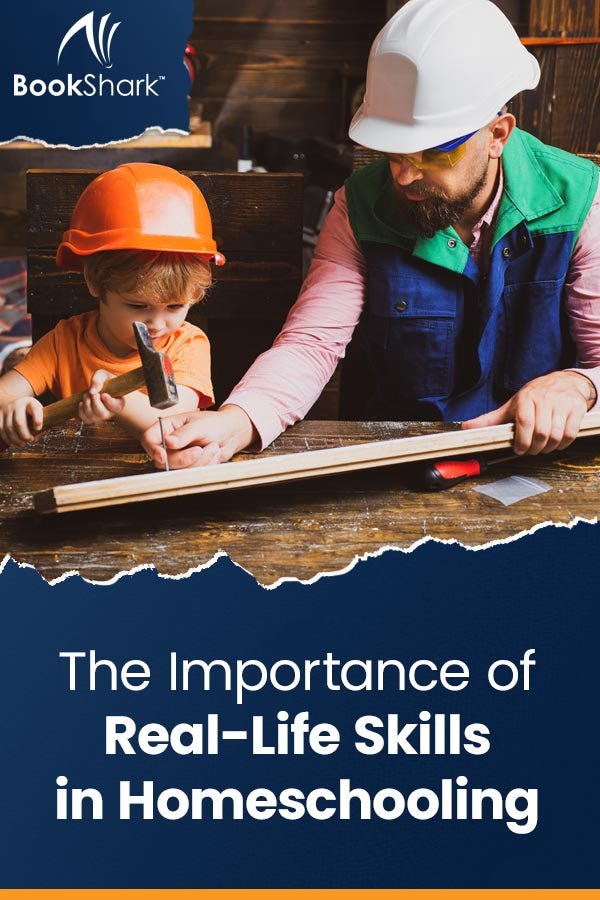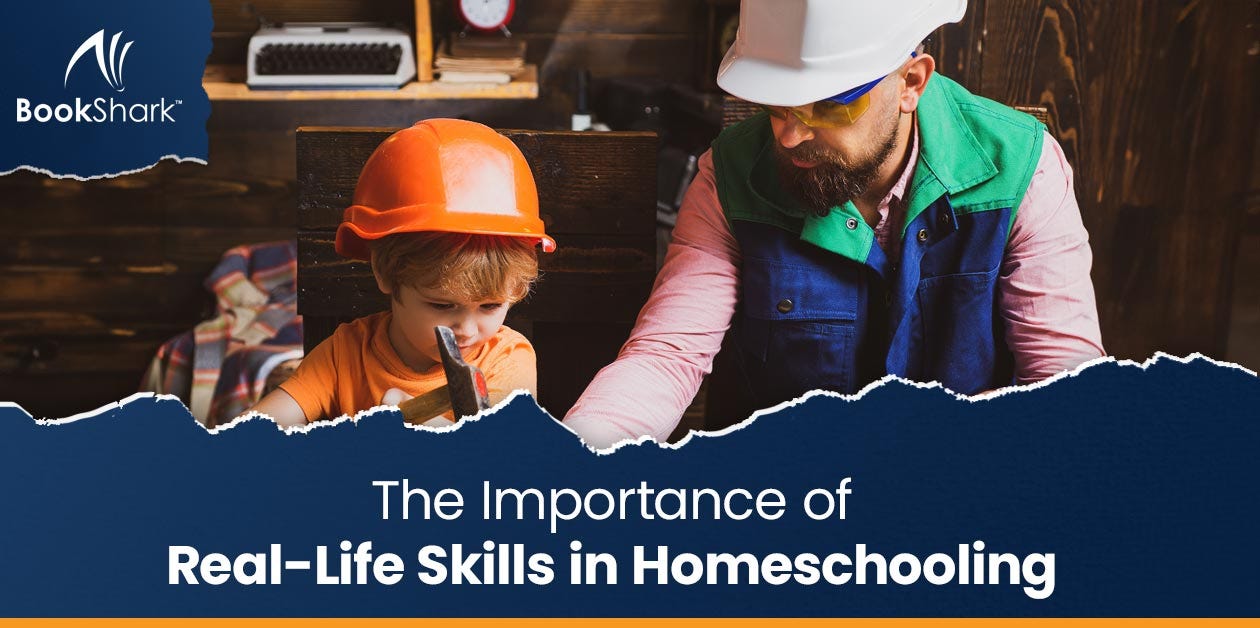As a current public school teacher and homeschool mom, I’ve had the unique experience of seeing the strengths and limitations of both educational systems. One of the biggest distinctions I’ve noticed is the ability to seamlessly incorporate real-life skills into my children’s education through homeschooling—something that is often difficult to achieve in a traditional school setting.
In public schools, there’s a necessary emphasis on academic subjects like math, reading, and science. These are, of course, crucial for academic success, but they often leave little room for the practical skills that children will need as adults—skills like financial literacy, entrepreneurship, time management, and character development. Homeschooling gives me the freedom to cover these life skills in a way that’s not just an add-on but a fundamental part of our daily learning. Here’s why that makes all the difference for our family.
Incorporating Real-Life Skills
One of the great benefits of homeschooling is the ability to emphasize life skills that are often overlooked in traditional schooling. As a teacher, I’ve seen firsthand how limited the time and resources can be to teach students about practical, everyday subjects such as managing money, understanding taxes, or even basic home maintenance. In a traditional classroom, these topics are either briefly touched upon or, in many cases, not covered at all due to the demands of a packed curriculum.
With homeschooling, I can make real-life skills a priority. Financial literacy is something we start teaching early on. My kids learn about budgeting, saving, investing, and even understanding the importance of taxes. These are skills that will serve them for the rest of their lives but are rarely taught in schools. Similarly, we delve into entrepreneurship. My children are encouraged to think creatively about how they can turn their passions and hobbies into future business ventures. Whether it’s learning how to market a product or understand the basics of supply and demand, these are the types of lessons that go beyond traditional textbooks.
Time management is another crucial skill that’s woven into our daily routine. My children learn how to structure their day, set goals, and manage their workload—all while balancing the flexibility homeschooling allows. These are essential skills that prepare them for real-world responsibilities in adulthood.

Homeschooling allows us to nurture our children’s interests, equip them with essential life skills, and create an educational environment where learning is not just academic but practical, character-driven, and connected to the real world.
Fostering a Love of Learning
One of the most significant differences between homeschooling and traditional schooling is the ability to foster a genuine love of learning. In a public school setting, children often have to follow a rigid schedule that doesn’t allow them the freedom to dive deeply into subjects that interest them. As a teacher, I’ve seen how this can sometimes make learning feel like a chore for students, and it’s frustrating when I know that there’s so much more potential if we just had the time and freedom to explore.
With homeschooling, we have the flexibility to focus on subjects that ignite my children’s passions. If one of my children becomes fascinated with space, we can spend extra time studying the stars, exploring NASA’s latest missions, and even building our own model rockets. If another child is interested in art, we can dedicate time to understanding different techniques, studying famous artists, and creating our own gallery-worthy pieces at home. This ability to let curiosity lead the way helps my kids develop a genuine love of learning, something that I know will extend far beyond their “school years.”
This passion-driven approach simply isn’t something that traditional schools can offer due to time constraints, standardized testing, and the need to cover a set curriculum. Homeschooling, on the other hand, allows for this individualized, interest-based learning that makes education more engaging and meaningful.
Focus on Character Development
Another area where homeschooling shines is the focus on character development. In a public school setting, the focus is naturally on academic achievement and following school rules, but there’s often not enough time to teach the deeper values that help shape children into compassionate, responsible adults.
Homeschooling gives me the opportunity to emphasize character development as part of our everyday learning. We integrate lessons on kindness, empathy, responsibility, and resilience into everything we do. Whether it’s through discussing how historical figures demonstrated these traits or practicing these values in real-life situations, character-building is at the core of our homeschool approach.
For example, when we study history, we don’t just focus on dates and events. We have discussions about the moral and ethical decisions made by people in the past. We explore how acts of courage, integrity, and compassion have shaped the world and how these same values are important in their own lives. This approach helps my children grow not only academically but also emotionally and socially, preparing them to be thoughtful, engaged members of society.
Connecting with the Natural World
Homeschooling also provides us with the freedom to incorporate outdoor and nature-based learning, something that’s difficult to do consistently in a traditional school setting. As a family living in beautiful California, we have access to incredible landscapes that serve as our outdoor classroom.
Public schools, while offering recess and occasional field trips, often don’t have the flexibility to immerse children in nature as a regular part of their education. With homeschooling, we can step outside whenever we need a break or want to explore a new topic. We’ve spent mornings hiking, identifying local plants, and observing wildlife. My children have learned not just from books but by experiencing the natural world firsthand.
These outdoor experiences not only enrich their understanding of subjects like biology and environmental science but also reinforce the importance of stewardship, conservation, and respect for nature. These are lessons that I hope will stay with them for life.

Why Real-Life Skills Matter
Incorporating real-life skills into homeschooling is about more than just preparing children for adulthood—it’s about giving them a holistic education that reflects the realities of the world they’ll live in. In a traditional public school setting, there are many constraints: curriculum requirements, time limitations, and large class sizes that make it difficult to focus on individualized life skills. As a public school teacher, I know how much teachers would love to do more, but it simply isn’t always possible.
Homeschooling bridges that gap. It allows us to nurture our children’s interests, equip them with essential life skills, and create an educational environment where learning is not just academic but practical, character-driven, and connected to the real world.
As a public school teacher and a homeschool mom, I see firsthand how homeschooling offers opportunities that simply aren’t available in traditional education. The ability to incorporate real-life skills like financial literacy, time management, entrepreneurship, and character development into our daily lessons has made all the difference for our family. This holistic approach to learning is what I believe truly prepares children for life beyond the classroom, equipping them with not just academic knowledge but the practical skills and values they’ll need to thrive in the real world.

